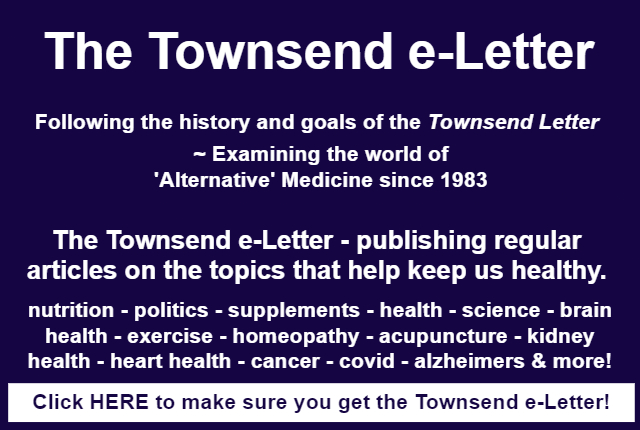The Frustrations that Infuriate a Doctor
While most integrative and naturopathic physicians avoid prescribing pharmaceuticals, certain circumstances arise prompting a prescription. If the drug being prescribed is non-formulary, meaning that the insurance company will not automatically authorize payment, the doc is forced to seek what is called “pre-authorization.”
One would think that appropriate medical reasoning would satisfy the process to determine whether a requested drug was deemed necessary and reimbursable. Instead, insurance companies have set up operators called pharmacy benefit managers who have been given the role of adjudicating whether a pre-authorization is acceptable or not—except that there is no adjudication. Many of these individuals lack medical education, indeed, lack a college education. They are given a script to follow when one requests pre-authorization. One can imagine the dialogue that ensues when the doc calls to obtain the drug okay.
As Paul E. Sax, MD, recounts in a March 7, 2022, blogpost, it can be a frustrating and infuriating waste of time. Dr. Sax is clinical director of the division of infectious diseases at Brigham and Women’s Hospital and professor of medicine at Harvard Medical School. In “How to Induce Rage in a Doctor,” he describes the experience of trying to obtain doravirine for a patient. Given the patient’s past history with other HIV treatments and his present need for corticosteroid injections for back pain, doravirine was the only option. Unfortunately, doravirine was non-formulary; it required pre-approval.
“If you’re wondering how to make a doctor angry—really, really angry—read on,” writes Sax. “Because asking us to justify treatment decisions to insurance companies and their pharmacy benefit managers must rank right up there with the greatest tortures of practicing medicine in this country.”
When Sax’s pharmacy team was unable to get authorization, the doctor called the insurance company himself in the hope of consulting with a peer who would understand why doravirine was necessary. After enduring long wait times on the telephone and speaking to three different pharmacy benefit managers, he was informed that the patient needs to make a written appeal. One month after his initial appointment, the patient was still waiting.
This summary doesn’t do justice to his blogpost; it’s worth a read.
We know that many physicians are experiencing burnout and not a few are leaving the profession either quitting or retiring. One of the biggest complaints of most docs is the administrative work necessary to complete a patient’s care. Pre-authorization of drugs is among the many tasks that make doctors want to quit.
Integrative and naturopathic docs who are not involved in this pre-authorization racket should be very grateful that most alternative care is not covered by insurance, eliminating the need for pre-authorization. Still there should be a better way for doctors to secure authorization for the patient’s medication.
The January 2023 publication, Medical Economics, addressed the problem physicians face with prior authorizations. The article recommended placing one staff person in charge of all prior authorization requests. Because the health plans look for any basis for denying the requested drug, the chart notes need to be complete to ensure key clinical reasons are provided. Like the internist who discussed his woes dealing with the insurance carrier, it is necessary to be persistent. Be sure to engage the patient in the prior authorization process–the patient may ascertain what is necessary for the doctor to secure authorization. Also as the HIV doctor attempted, keep demanding a peer-to-peer consult to discuss why the drug is necessary. It is useless to attempt convincing an agent with a high school education of the critical need for the specified drug.
Literature Review and Commentary by Alan Gaby, MD
In this E-Letter we post Dr. Gaby’s “Literature and Commentary,” a regular feature of the Townsend Letter print magazine since the mid-1980s. Dr. Gaby has been a favorite instructor for naturopathic students as well as for physicians at functional medicine conferences. His second edition of Nutritional Medicine available in print and online is a compendium of nutritional information, secondary to none. Regretfully, Dr. Gaby’s “Literature Review and Commentary” has now come to an end for the Townsend Letter. Past issues of the Townsend Letter with Dr. Gaby’s writing have all been indexed; the index is available on the Townsend Letter website.
The first item in this E-Letter’s literature review discusses the successful prevention of bronchopulmonary dysplasia in premature infants using vitamin D. As Dr. Gaby comments, if this report is further verified, it would be a remarkable tool to support premature infancy. Vitamin D has become well recognized in conventional adult medicine as the one vitamin worthy of routine testing to determine if it is adequate or low. Those patients having low vitamin D levels are prescribed vitamin D supplementation with subsequent monitoring done to ensure that adequate vitamin D levels are achieved.
Dr. Gaby has expressed some skepticism that excess vitamin D supplementation is valuable; it may be detrimental. His assessment of excess vitamin D supplementation in adults is above 2000 IU daily. Some vitamin D proponents feel otherwise and approve of dosing two-to-three times this amount and in certain circumstances even more. It does appear, however, that individual dosing of vitamin D is appropriate in everyone and, as this report indicates, starting in infancy.
Jonathan Collin, MD
Publisher


